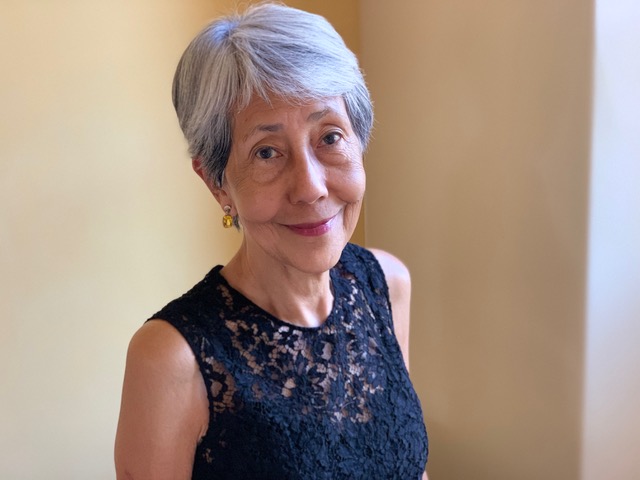A short profile on Myanmar’s ousted democracy leader Daw Aung San Suu Kyi has hit the bookstores in the UK, becoming the latest book about the Myanmar junta’s most high-profile political detainee, who will turn 78 on Monday. The book’s author, Burmese-born novelist Wendy Law-Yone, told The Irrawaddy that she started working on her latest book, Aung San Suu Kyi: Politician, Prisoner, Parent after the 2021 military coup in Myanmar with the aim of exploring the three main aspects of the popular leader’s career that are pointed to in the title.
Law-Yone is the author of A Daughter’s Memoir of Burma (2014), Golden Parasol (2013), The Road to Wanting (2010), Irrawaddy Tango (1994) and The Coffin Tree (1983). In this interview with The Irrawaddy, she discusses what distinguishes her book from the many others that have already appeared about Daw Aung San Suu Kyi, as well as other issues related to the book and Myanmar’s most famous political prisoner.
The Irrawaddy: Many books have been written about Daw Aung San Suu Kyi already. What’s new in your book?

Wendy Yaw-Lone: The abundance of books on Daw Aung San Suu Kyi is always a deterrent to writing yet another one about her. I have written one anyway. If there is anything really new about mine, I suppose you could say it’s neither a puff-piece nor a polemic. Most books about her are either one or the other.
What inspired you to write the book?
I don’t know if “inspiration” is the right word. The idea wasn’t mine. It came from a publisher in the UK.
When did you first get the idea to write the book?
I never thought about writing a book about Daw Aung San Suu Kyi, and probably never would have written one if I hadn’t been asked to. But not long after the 2021 coup, I was invited to write an article on [her] by the TLS [Times Literary Supplement] in London. When I outlined the article I had in mind, the editors thought it could be expanded and published as a book. I agreed.
How long did it take to finish the book and what were the challenges?
I was supposed to finish the book in three months, and I did. But publication was delayed because the Russian invasion of Ukraine somewhat overshadowed the troubles in Myanmar. Then it was one damned thing after another, and the world kept shifting its gaze to other, more compelling, global catastrophes. Meanwhile, Myanmar was fast fading from memory. It was only when Daw Aung San Suu Kyi’s succession of closed trials was finally brought to an end that publication of the book could be brought forward.
How did you feel writing the book, knowing that the main subject of the story was—and remains—in prison ?

That was a difficult question, and I must admit it gave me pause. But then everything I write gives me pause. In this case, the hesitations were heavier than usual. But once I decided it was a book worth writing and contracted to write it, I simply had to power through all the doubt and vacillation and just get on with the job.
What kind of person is she to you? Given the current situation she is in, what do you think of her?
I have never actually met Aung San Suu Kyi, and maybe for that reason she remains opaque, even impenetrable to me. But what I think of her is not the point: It’s what people both inside and outside Myanmar think of her that I discuss in my book.
What kind of politician is she to you? She is now 78 and still in prison… some people think her leading political role in Myanmar is over. What do you think?
A 78-year-old sentenced to 33 years in prison by Myanmar’s military government? Yes, I think it’s the end of her political career. But Aung San Suu Kyi has a particular hold on the collective imagination of the people of Myanmar, and that mystique is far from over.
To many Myanmar people, she is a motherly figure. For her family, what kind of mother is she?
The original title of my book was Aung San Suu Kyi: Mothering Myanmar. The editors decided, for reasons I still don’t quite buy, to change the subtitle to Politician, Prisoner, Parent. In any event, I wanted to focus on the ways in which Daw Aung San Suu Kyi’s political life conformed to popular Burmese-Buddhist notions of motherhood. At a defining moment in her early political career, she chose not to return to her home in England, to her two young sons and her dying husband. She could have left the country, but doing so would most likely have meant being permanently barred from re-entry. That she chose country over family seemed shocking to much of the Western world. But to her Burmese devotees, the decision was seen as the supreme sacrifice a mother can make—for the greater good of her country. Not for nothing do the people of Myanmar—or I should say the Bamar people—refer to her as Amay Suu [Mother Suu].

















